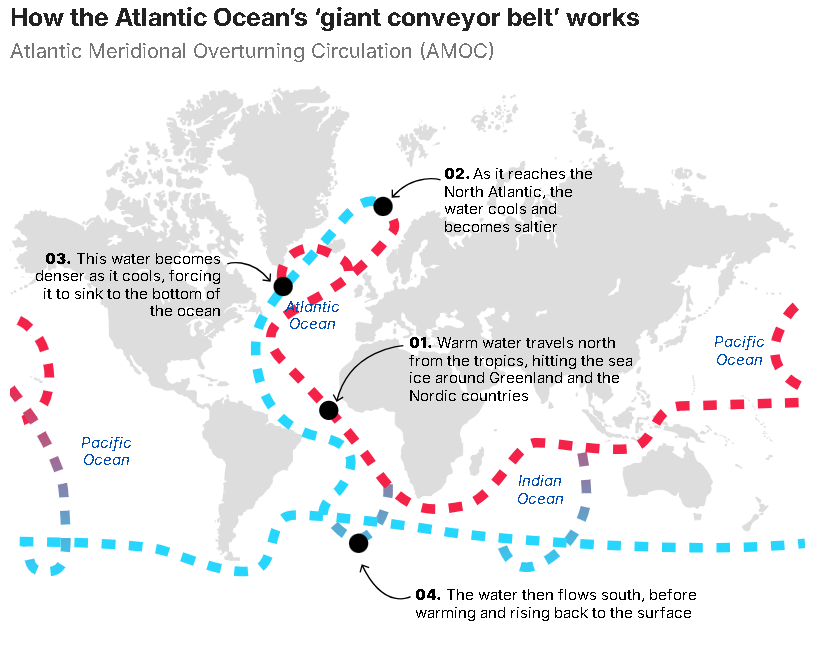News
Europe could plunge into an ice age if the Gulf Stream stops: climate scientists make dire forecast
Scientists are warning that the network of ocean currents that maintain a stable climate on Earth may soon collapse. 44 of the world's leading climate scientists have written an open letter stating that key Atlantic Ocean currents, including the Gulf Stream, are on the verge of collapse.
The collapse of the Atlantic Meridional Overturning Circulation (AMOC) could lead to devastating and irreversible consequences. And it will affect the whole world over the next centuries, MailOnline writes.
As a result, climatic precipitation could plunge Europe into a new ice age, when winter temperatures will drop sharply by 15°C below the current average.
It's important to understand that the Gulf Stream is a vital current and it is only a small part of the vast global AMOC system. This giant ocean conveyor belt is crucial for moving heat around the planet, but research shows that it is slowing down and may soon reach a tipping point.
According to scientists, without urgent action, the AMOC could fail within the next few decades.
As warm water moves northward from the tropics, it hits the sea ice around Greenland and the Scandinavian countries, cooling and becoming much saltier. As the water cools, it becomes denser, sinking rapidly to the ocean floor, where it flows back south before heating up again and rising to the surface. This process of deep water formation drives a vast global conveyor belt that pumps heat and water around the Atlantic Ocean.
However, research suggests that the AMOC's deep-sea engine has begun to slow down and is now showing worrying signs of breaking down completely. As global temperatures rise, melting ice returns fresh water to the oceans, diluting the denser salt water and preventing it from sinking.
If this process is completely disrupted, it will lead to catastrophic side effects, including a weakened Gulf Stream and disruption of global weather patterns.
But the latest report from the Intergovernmental Panel on Climate Change (IPCC) states that they have medium confidence that the Atlantic Meridional Overturning Circulation will not suddenly collapse by 2100. However, the authors of the open letter argue that this risk is significantly underestimated.
"Passing this tipping point is a serious possibility in the next few decades," the scientists write in their letter.
Research by the University of Copenhagen, published earlier this year, showed that the collapse could occur any time from 2025.
Only verified information is available on our Telegram channel OBOZ.UA and Viber. Do not fall for fakes!





























